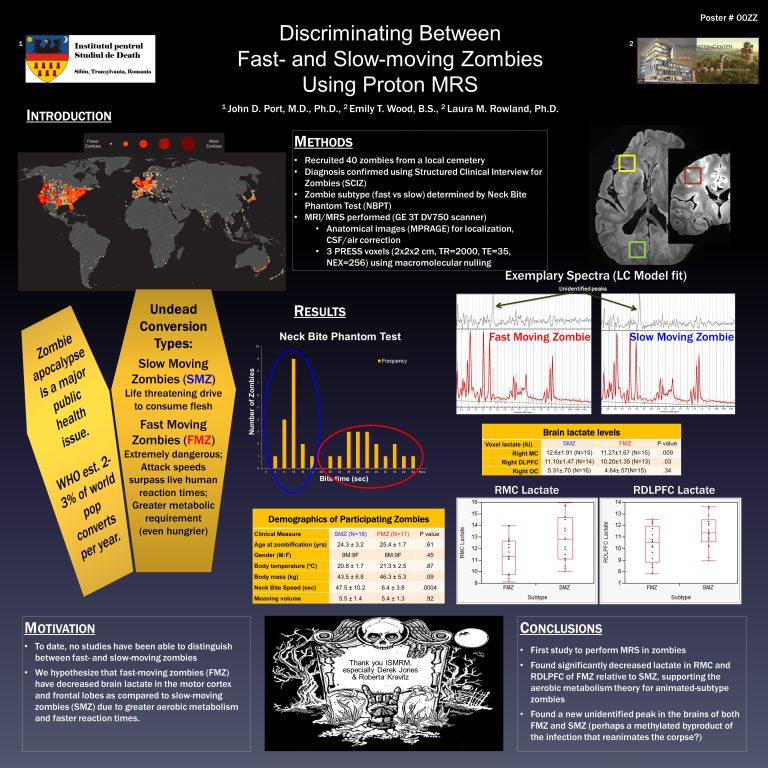The Importance of Continued Professional Development
Continued professional development is crucial for maintaining current knowledge and improving skills. It helps professionals stay competitive and adapt to the ever-evolving demands of their industry.
In today’s rapidly changing business landscape, staying up-to-date with the latest trends and technologies through continuous learning is essential for career growth and success. Professionals who invest in their own development demonstrate a commitment to excellence, which can lead to increased opportunities, promotions, and higher job satisfaction.
By actively engaging in continuous learning and personal growth, individuals can stay relevant and valuable in their field, ensuring they remain at the forefront of their industry. Whether through attending workshops, obtaining certifications, or participating in online courses, continued professional development is an investment that yields long-term benefits.
Advantages Of Continued Professional Development
Continued Professional Development offers numerous benefits, enhancing skills and knowledge, keeping professionals updated and competitive in their field. It enables them to adapt to changes, explore new opportunities, and excel in their careers.
Staying Updated With Industry Trends And Best Practices
In today’s rapidly evolving professional landscape, staying updated with industry trends and best practices is crucial for every individual seeking career growth. Continuous professional development not only ensures that professionals remain relevant in their respective fields, but it also positions them as experts who can adapt to new challenges effectively.
Here are some advantages of continued professional development:
- Adaptation to Changing Trends: Through ongoing learning and development, professionals can stay ahead of industry changes and adapt their skills accordingly. This enables them to navigate new technologies, emerging trends, and evolving best practices seamlessly.
- Expanded Knowledge Base: Continuing professional development allows professionals to expand their knowledge and gain deep insights into their areas of expertise. By exploring new concepts, theories, and research, individuals can enhance their understanding and achieve a broader perspective on their field.
- Improved Problem-Solving Abilities: As professionals delve into continued development, they are exposed to diverse perspectives and problem-solving techniques. This exposure helps them develop a more versatile toolkit to approach and overcome complex challenges effectively.
- Enhanced Networking Opportunities: Continued professional development often involves attending workshops, conferences, and events. These platforms provide excellent networking opportunities, enabling professionals to connect with peers, industry leaders, and potential collaborators. By expanding their network, professionals open doors to new career prospects and collaborations.
- Increased Professional Confidence: Taking the time and effort to invest in professional development boosts individuals’ confidence in their skills and abilities. With each new skill acquired or knowledge gained, professionals develop a greater sense of self-assurance, which positively impacts their performance and interactions within their professional sphere.
Enhancing And Expanding Professional Skills And Knowledge
Continued professional development offers numerous opportunities for individuals to enhance their existing skills and broaden their knowledge. Here’s why investing in personal growth is beneficial:
- Specialization and Expertise: Continued learning enables professionals to specialize in specific areas and become industry experts. By deepening their understanding of niche topics, professionals can position themselves as sought-after authorities, which opens doors to prestigious projects, speaking engagements, and leadership opportunities.
- Increased Efficiency and Productivity: By investing time and effort in professional development, individuals can acquire new skills and techniques that enhance their efficiency and productivity. These newly acquired skills often result in streamlined processes, improved performance, and the ability to achieve better results in less time.
- Versatility and Adaptability: As industries continue to evolve, professionals must remain versatile and adaptable. Continuing professional development equips individuals with the necessary skills to tackle new challenges and switch seamlessly between different tasks or roles as required by their organizations.
- Personal Satisfaction and Motivation: The pursuit of continued professional growth can bring a sense of personal satisfaction and motivation. Achieving milestones, acquiring new skills, or gaining recognition for professional achievements can provide a deep sense of fulfillment and encouragement to push further.
Building A Competitive Edge In The Job Market
In a highly competitive job market, continuing professional development is an excellent way to differentiate oneself and gain a competitive edge. Here’s how:
- Enhanced Employability: Employers value candidates who show commitment to professional growth and lifelong learning. Continued professional development showcases an individual’s drive for self-improvement and increases their attractiveness to potential employers.
- Updated Skillset: By engaging in ongoing learning, professionals can ensure that their skillset remains up-to-date and aligned with industry demands. This makes them more marketable, as employers seek candidates with the latest knowledge and abilities.
- Increased Career Opportunities: Continuous professional development opens the doors to new career opportunities and advancement. Through the acquisition of new skills and knowledge, professionals can transition to more senior roles, explore different industries, or even launch their entrepreneurial ventures.
- Networking Advantage: Engaging in professional development offers networking opportunities that can lead to job referrals, recommendations, or potential collaborations. Having a strong network can significantly enhance job prospects and keep professionals informed about upcoming opportunities.
Continued professional development is an investment in one’s future success. By staying updated with industry trends, expanding skills and knowledge, and building a competitive edge, professionals can position themselves for long-term career growth and fulfillment.
Strategies For Effective Continued Professional Development
Effective continued professional development is crucial for professionals who aim to stay ahead in their field. By continuously updating their skills and knowledge through various strategies such as attending conferences, taking online courses, and seeking mentorship, individuals can ensure their ongoing growth and success in their careers.
The Importance Of Continued Professional Development
Professional development is vital for individuals who want to stay competitive and excel in their careers. In today’s fast-paced world, the need to continuously update skills and knowledge has become more apparent than ever. This blog post will explore strategies for effective continued professional development, helping you enhance your expertise and achieve your personal goals and objectives.
Identify Personal Goals And Objectives
To succeed in your professional development journey, it is crucial to first identify your personal goals and objectives. Take some time to reflect on your career aspirations and determine what skills or knowledge gaps you need to address. By setting clear goals, you can focus your efforts and make the most of your professional development opportunities.
Seek Professional Development Opportunities
Once you have identified your goals, the next step is to actively seek out professional development opportunities. Here are some avenues to explore:
- Conferences and Workshops: Attending industry conferences and workshops can provide valuable insights and networking opportunities. These events offer a chance to learn from experts in your field and stay up-to-date with the latest trends and practices.
- Online Courses and Webinars: Online courses and webinars are convenient options for continued professional development. They offer flexibility in terms of time and location, allowing you to learn at your own pace. Look for reputable platforms that offer relevant courses in your industry.
- Professional Associations and Communities: Joining professional associations and communities can connect you with like-minded individuals who share your professional interests. These networks often provide access to workshops, seminars, and resources tailored to your industry.
Engage In Reflective Practice And Self-Assessment
To truly grow professionally, it is essential to engage in reflective practice and self-assessment. Take time to reflect on your experiences, both successes and failures, and identify areas for improvement. Regular self-assessment can help you develop a growth mindset and continuously strive for excellence.
Create A Personal Development Plan
Having a well-defined personal development plan is crucial for effective continued professional development. Outline actionable steps and milestones that align with your goals and objectives. Break down your larger goals into smaller, achievable tasks that you can work on regularly.
Seek Feedback And Mentoring
Feedback and mentoring can be invaluable sources of guidance and support in your professional development journey. Seek feedback from colleagues, supervisors, or mentors who can provide constructive criticism and help you identify areas for improvement. Consider finding a mentor who can offer advice, share their experiences, and provide valuable insights into your chosen field.
Continued professional development is paramount in today’s fast-paced and ever-evolving professional landscape. By identifying your goals, seeking out opportunities, engaging in reflective practice, and seeking feedback, you can stay ahead and continuously improve your skills and knowledge. Embrace the mindset of lifelong learning and watch your professional growth soar.
Overcoming Challenges In Continued Professional Development
Continued Professional Development plays a crucial role in overcoming challenges and staying relevant in today’s fast-paced world. By continuously updating skills and knowledge, professionals can adapt to changing demands, improve performance, and achieve long-term success in their careers.
Lack of Time and Resources:
- Many professionals struggle with finding enough time to engage in continued professional development (CPD) due to their busy schedules and work commitments.
- Limited resources, such as financial constraints or lack of access to learning opportunities, pose challenges in pursuing CPD effectively and efficiently.
- To overcome these challenges, individuals can explore various strategies, including:
- Prioritizing CPD by setting aside dedicated time slots each week or month for learning and development activities.
- Seeking support from employers or organizations to fund or provide resources for CPD initiatives.
- Utilizing alternative learning methods, such as online courses or webinars, which offer flexibility and convenience.
Balancing Work and Personal Commitments:
- Balancing work responsibilities with personal commitments can be demanding and make it challenging for professionals to prioritize CPD.
- However, finding a balance is crucial to maintain professional growth and keep up with industry advancements. To overcome this challenge:
- Create a realistic schedule that incorporates dedicated time for CPD activities.
- Delegate tasks or seek assistance from colleagues when necessary to free up time for CPD.
- Communicate with family and friends about the importance of CPD and request their support in managing personal commitments.
Overcoming Resistance to Change:
- Some professionals may resist participating in CPD due to a fear of change or a lack of awareness about its benefits.
- Addressing this resistance can help individuals embrace CPD for their professional development. Strategies to overcome resistance include:
- Educating individuals about the advantages of CPD and how it can enhance their skills and career prospects.
- Encouraging a positive mindset by highlighting success stories of those who have benefited from CPD.
- Providing incentives, such as rewards or recognition, to motivate professionals to engage in CPD activities.
Staying Motivated and Avoiding Burnout:
- Maintaining motivation and preventing burnout during the CPD journey can be a challenge, especially when faced with demanding workloads or competing priorities.
- To stay motivated and avoid burnout, professionals can consider the following strategies:
- Setting specific goals and milestones for CPD, which can provide a sense of achievement and purpose.
- Taking regular breaks and practicing self-care activities to recharge and prevent burnout.
- Engaging in networking or joining professional communities to connect with like-minded individuals and gain support.
Remember, continued professional development is crucial for professionals to adapt to the ever-evolving demands of their industries. By addressing challenges such as time constraints, work-life balance, resistance to change, and burnout, individuals can create a conducive environment for their ongoing learning and growth.

Credit: www.illumeo.com
Frequently Asked Questions On The Importance Of Continued Professional Development
Why Is Continued Professional Development Important?
Continued professional development is important to enhance skills and knowledge in your field. It keeps you competitive and updated.
What Is The Importance Of Continued Professional Development To Improve Own Skills And Early Years Practice?
Continued professional development is important for improving skills and early years practice.
Why Continuous Professional Development Is Important And How This Benefits Students?
Continuous professional development is important for enhancing skills, knowledge, and career growth. It benefits students by providing them with updated information and expertise for their future success.
What Is The Meaning Of Continued Professional Development?
Continued professional development means ongoing learning and growth in one’s field to enhance skills and knowledge.
Conclusion
Continued professional development is an indispensable aspect of career growth. By staying updated with the latest industry trends and acquiring new skills, professionals can enhance their job prospects and ensure their long-term success. Whether through attending workshops, pursuing certifications, or engaging in networking events, investing in ongoing learning can have numerous benefits.
It enables individuals to gain a competitive edge, stand out from their peers, and demonstrate their commitment to self-improvement. Moreover, continuous development allows professionals to adapt to a rapidly evolving workplace, where new technologies and methodologies emerge regularly. It also fosters personal growth, instilling a sense of confidence and self-assurance.
As professionals strive to remain relevant and valuable in their industry, continued professional development serves as a vital tool to ensure they not only meet the demands of their current roles but also stay ahead in their careers. Embracing lifelong learning is key to unlocking the countless opportunities that await and ultimately, achieving professional excellence.




